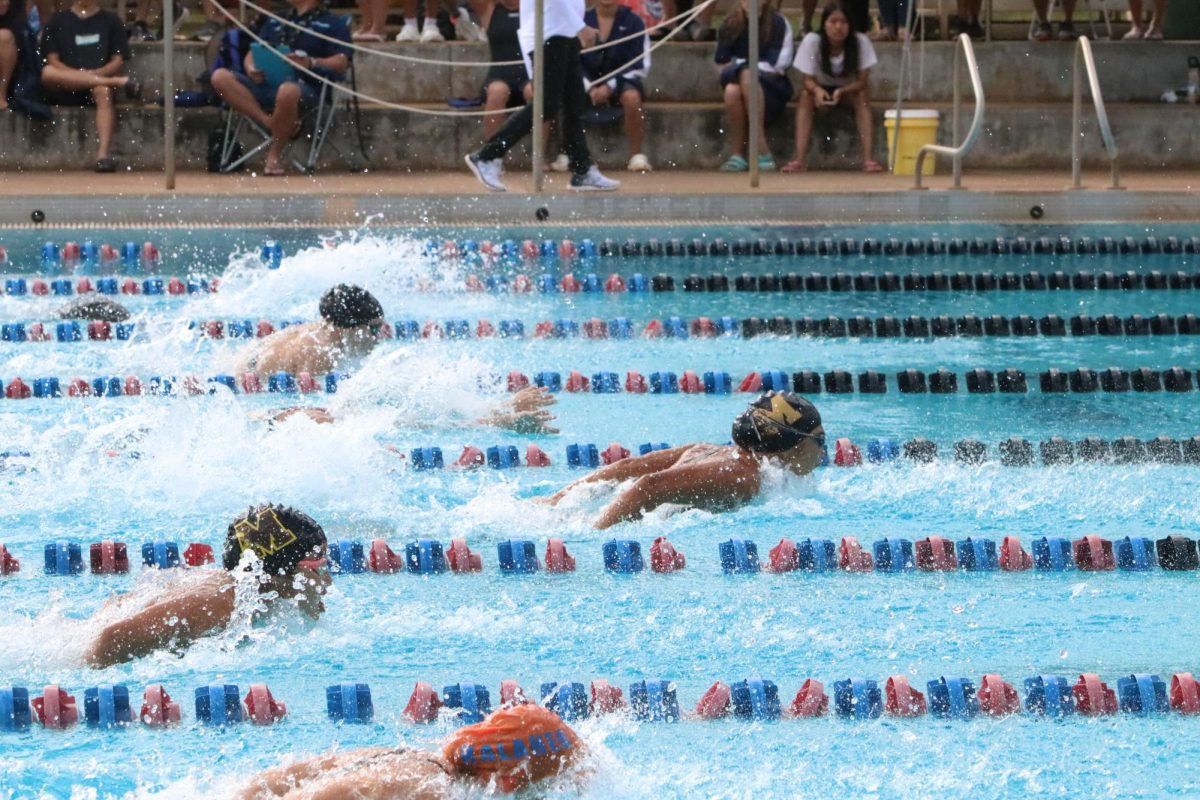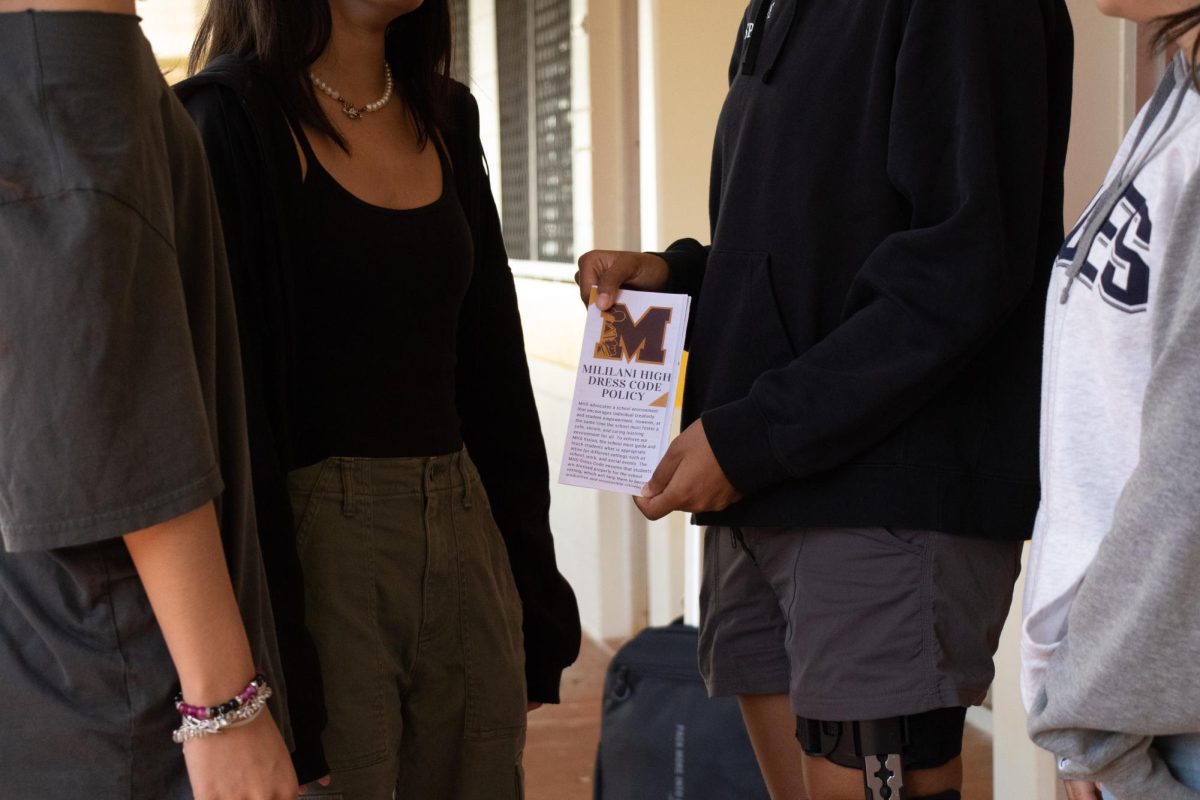FIRST and VEX Robotics Teams Prepare for Remote Competitions
February 6, 2021
In 2020, students and teachers at Mililani High School (MHS) made efforts to adapt to virtual learning. Despite this drastic change, the MHS VEX Robotics Team and the Inspiration and Recognition of Science and Technology (FIRST) Robotics teams have been preparing for several upcoming competitions.
“To me, my favorite thing about robotics would have to be the creativity members able to express. There are no instructions to building a robot. We have existing building techniques that we can use, but we don’t have to follow them,”* said VEX Robotics club president senior Mark Budiao.
VEX Robotics is a program managed by the Robotics Education and Competition foundation (REC) and is open to students of all school levels from elementary through university. Budiao described the VEX Robotics club as an opportunity to develop engineering and teamwork skills, while building a robot that can complete a specific task.
“VEX Robotics offers IET (Industrial Education Technology) Pathway students to demonstrate their acquired academic and technical skills in a competitive setting that measures their building, programming and robot driving skills,” said VEX Robotics club advisor Timothy Pregana. “Robotics helps students to pursue their purpose and passion in programming and engineering and to go beyond from what is being taught in the classroom.”*
Traditionally, the VEX Robotics club competed in multiple competitions leading up to the state competition. However, because all of the VEX Robotics competitions this year were held remotely, the club planned on competing in several competitions. The most recent competition that the club has been preparing for is the Midwest Robotics Tournament in Michigan. It will take place on February 6, and all the teams that are competing will be using live stream software.
Although the FIRST Robotics program involves a team that works together to build a robot that carries out a specific task, the advisor of the FIRST Robotics club Tyson Kikugawa believes that it is also designed to develop future leaders. “It is not only about the robot; it’s about being in a community and contributing to a community towards an accomplished goal,” said Kikugawa.
While the members of the VEX Robotics club compete in multiple competitions, the FIRST Robotics club plans on competing in two: the FIRST Tech Challenge and the FIRST Robotics Competition. The FIRST Tech Challenge includes students from grades seven through twelve, and the state finals event will take place in mid-March. And although the Hawaii FIRST Tech Challenge holds weekly events since December up until March, teams are not required to compete every week. As for the FIRST Robotics Competition, this only allows students in high school levels to compete and the submissions for this competition are due on March 4th. Both of these competitions will be held remotely.
Both the members in the FIRST Robotics club and the VEX Robotics club have been using a hybrid learning system to prepare for their competitions, in which some students attend the meetings in-person while the rest join virtually. With this new system, Budiao has found the main difficulty to be finding members that were motivated to participate in the club virtually. In comparison to the FIRST Robotics club, Kikugawa has found the collaboration aspect to be the biggest challenge so far.
“It’s a group of people that comes together and works towards a common goal, and it is really challenging to do that in an online environment cause it’s hard to kind of get – it’s been tough to get those really rich conversations about the designs and the ideas and the solutions in this current environment,” said Kikugawa.
The main difference between the VEX Robotics and FIRST Robotics program and competitions were the expectations. The challenges for VEX Robotics competitions were typically released at the beginning of the summer, in which they have the year to compete and modify their robots. In contrast to FIRST Robotics, the challenges were released a lot closer to the competitions, allowing only a couple of months to prepare for them.
“Other than that, they both do a great job of preparing students, and they are both good STEM education opportunities. Both hold off for, you know, the itinerary process of engineering and the whole ‘going beyond the engineering’ concept. Kind of like basic business and marketing skills are necessary to be successful in both,” said Kikugawa.
After the Midwest Robotics Tournament, the VEX Robotics team plans on attending several competitions, and the FIRST Robotics team are working towards the FIRST Tech Challenge and FIRST Robotics Competition.
*Quotes modified by interviewees 2/8/21




